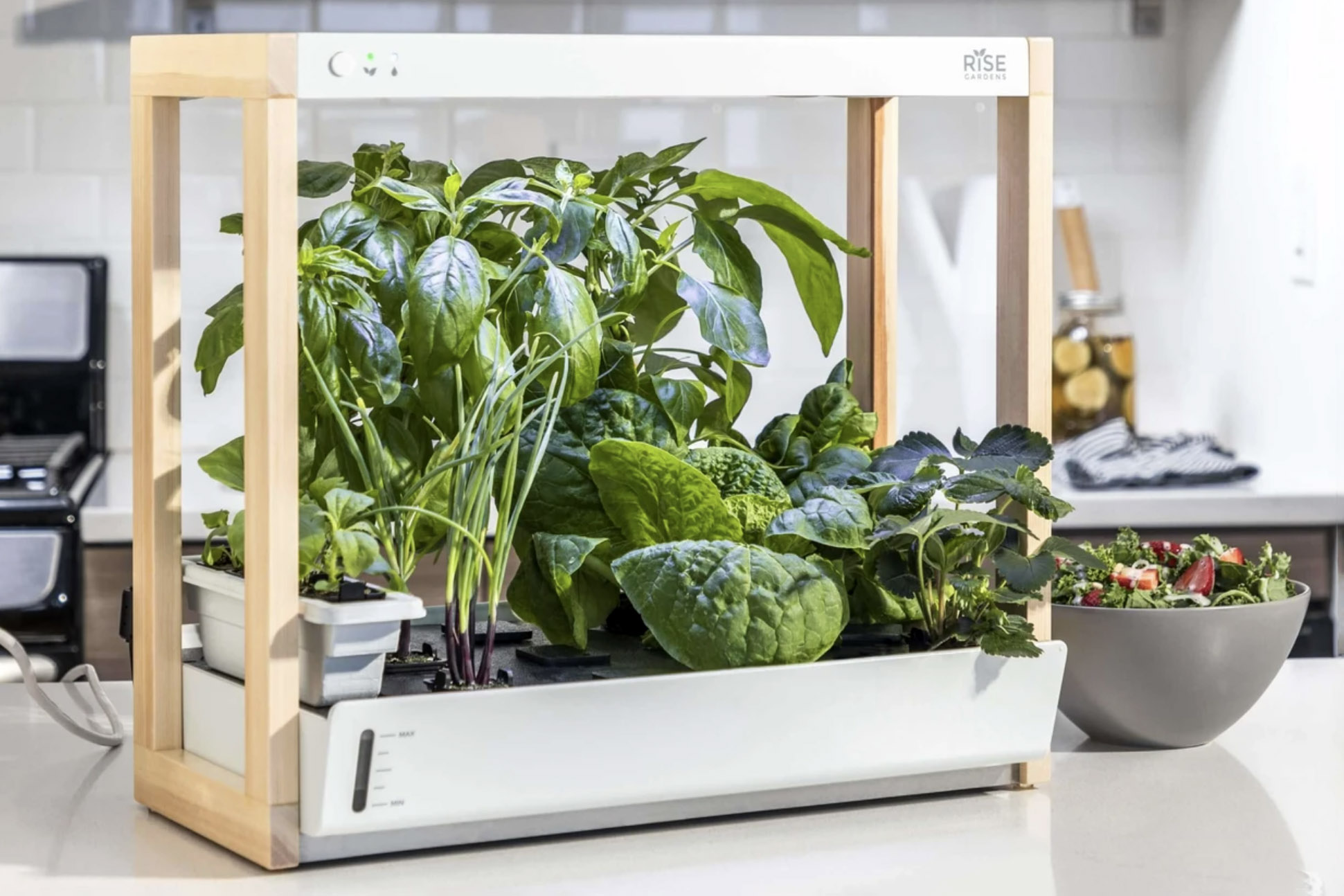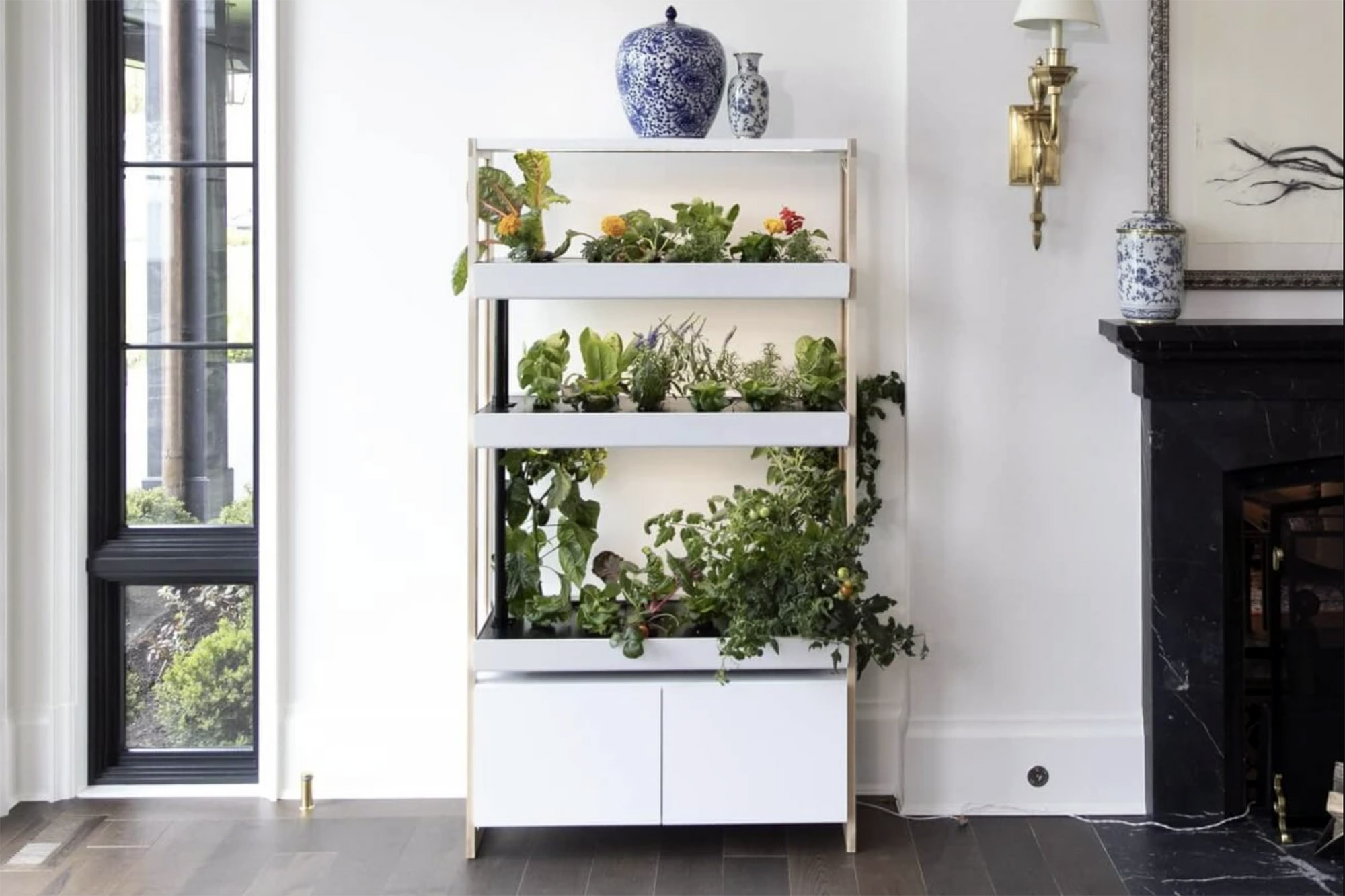There’s nothing like having a garden of your own, tending it, and reaping the rewards. Freshly grown tomatoes, kale, and herbs just have a better taste coming right out of the ground. But winter poses a problem for would-be horticulturalists. I live in Chicago, so my growing time is limited to a few good months in the late spring and summer until it’s back to the grocery store.
So when I met with Rise Gardens at CES 2021, I was immediately intrigued because Rise has a system that gives you everything you need to grow just about anything, just about anywhere, at just about any time. Its system is called the Rise Garden, a Wi-Fi-connected hydroponic garden that lets you grow vegetables and herbs — perfect for the home! They have multiple sizes from a tabletop system, to one that’s about the size of a sofa table (that’s the one I tried), to a three-tiered system that lets you grow all the things.
Is it a smart garden?
You might be wondering how this is a smart home product. It’s Wi-Fi and app-connected and keeps you on top of routine maintenance that’s needed every now and then. A water pump circulates the water from a reservoir up to the garden, and the app lets you know how the water level is, and how the plants should be progressing based on when you planted them. Plus, the app informs you when maintenance is required, such as a full cleaning of the product.
It’s much more friendly to the environment and your wallet to grow at home.
More importantly, the app guides you through regular maintenance needed to the water, to ensure the plants are getting the nutrients they need. With an included sensor, you can measure the pH and EC (dissolved nutrients) of the water. You can then add nutrients or pH balance as needed. It’s a really cool system that allows you to grow whatever you want year-round.
The hardware is well built and attractive as well. The single-family garden, which is what I initially received, is a single-tier system that looks a lot like a sofa table that you would buy from a furniture store. All the electronics you need are contained in the bottom cabinet, including the water pump and reservoir. The plants grow in seed pods that snap into the first tier. Above the seeds is a top, that has LED lights that help the plants grow. That means you do not have to keep your garden near a window. It can be set up anywhere.
Wasting time and food
I spoke to Hank Adams, the founder of Rise Gardens, who lives in my hometown of Chicago, and as it turns out we had similar goals. Adams founded Rise Gardens because he too was frustrated with the short growing season we get in Chicago. He is also frustrated with our food system in most of the modern world. Selling produce at a grocery store can be extremely wasteful. It’s much more friendly to the environment and your wallet to grow at home.
The single-family garden is expandable to a two- and three-tier system if you want. I received a second tier for the garden, but I had already planted the first tier, so the second tier will have to wait until I clean the garden (which the app informs me will be in May). But this kind of expandability and versatility is exactly what I was looking for. The system can be expanded with trellises and other accessories as needed for whatever you want to grow.
In addition to the garden systems, Rise also sells everything you need to keep your garden going. The initial garden you buy comes with everything you need to get started including seed pods, nutrients, pH balance, and a sensor to detect nutrient and pH levels in the water. You can buy seed pods, and all those other accessories to keep your garden going. Additionally, you can grow basically anything you want by buying blank seed pods and planting your own seeds.
Getting connected
The app experience is good, but it’s not quite where it needs to be. The app will send notifications when it’s time to check the nutrients and pH, and it walks you through getting all that setup, which is great. But I’d like to see notifications on when plants need to be harvested, and a little adaptability if plants aren’t there yet.
For example, if I plant an arugula plant in the garden, I’d like a notification to pop up when the app thinks it’s time to harvest. The app already tells me what to look for when it’s time to harvest, but then what happens if it’s taking longer than it should? I should be able to go into the app and tell it I don’t see flowers yet, and the app should know then to reset the notification for a few days from now. This is obviously advanced functionality, but it would be nice to see, especially for novice hydroponic gardeners like myself.
Overall, this is a really great system that anyone can pick up. The furniture is attractive, fits in with your decor, and can basically go anywhere. Plus, it’s ecologically friendly and it tastes great, even in the middle of this winter in Chicago that looks like it might finally be willing to relent. If you have the means, this is a really solid buy and can keep your family fed for quite some time.








